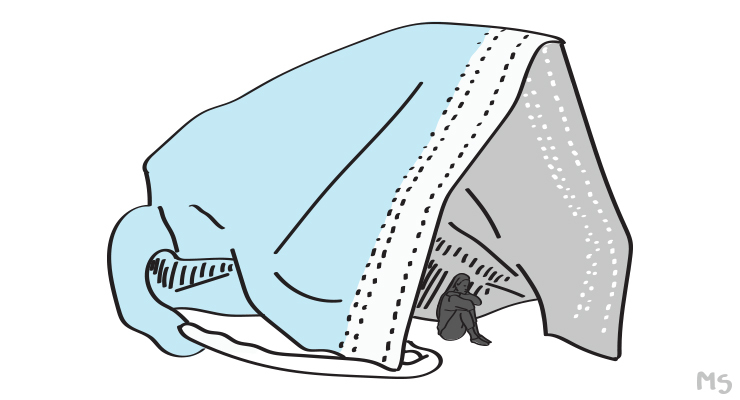
Australia has national memorials for veterans killed in combat, for Australians who have died as a result of work-related accidents, incidents and disease, and is soon to have a memorial for victims and survivors of institutional child sexual abuse.
Now, disability advocates want a national memorial for the 15,000 Australians killed by COVID-19, calling on politicians to introduce a minute’s silence in all Australian parliaments to mourn those lost.
The idea was raised at a virtual town hall meeting last night, organised by a grassroots collective called Australians Against COVID. Speakers included Greens Senator Jordon Steele-John, Suresh Rajan from the Ethnic Communities Council of Western Australia, Samantha Connor from People With Disability Australia, and Advocacy for Inclusion’s head of policy Craig Wallace. About 300 people attended the online event.
A national memorial, Wallace told Crikey, would serve as a reminder that the catastrophe had an impact on human lives the same way floods or fires did.
“Perhaps it would invite people to reconsider the measures that we’re taking to deal with the catastrophe. Or perhaps it would just provide people with an opportunity to mourn and remember people who have been lost,” he said.
The meeting came after national cabinet announced on Friday that mandatory isolation requirements for those with COVID and disaster payments for all workers outside of high-risk workplaces would be scrapped.
The decision was strongly criticised by the disability community who said the pandemic was not over, and that treating the disease as a minor ailment put the lives of the immunocompromised at risk.
“There were a lot of people in the meeting that were really sad, talking about what they’d lost,” Wallace said. “The remaining protections that we had to enable any kind of community access are being stripped away. I think people are feeling a bit hopeless at this point.”
As well as a national memorial, the group also wants people with disabilities to have trusted representatives invited to address national cabinet. Wallace said a range of people had been invited — including Australian of the Year Dylan Alcott to discuss disability employment issues — but no one to discuss the lives of the immunocompromised.
Gay men and intravenous drug users were invited to discuss the policy response to HIV, and the same courtesy should be expended to people with disabilities: “The most impacted people of COVID are people with disabilities, older people and immunocompromised people, and we are not being listened to. We’re not being present at the table.”
The group also wants the government to commit to a goal to end uncontrolled COVID transmission, reinstate isolation periods and disaster payments for low-income and casual workers, and acknowledge that a failure to provide COVID-safe spaces, places, schools and transport disriminates against sick, older and disabled people.
It’s also calling for funding and requirements to make public places COVID safe with safe indoor air and mask use, a Medicare line item for long COVID, and for the release of all advice and data underpinning national cabinet decisions.
An e-petition has been launched, with plans to present it to Parliament.
Prime Minister Anthony Albanese and NDIS Minister Bill Shorten have been contacted for comment.
Should there be a national memorial for those who died of COVID? Let us know your thoughts by writing to letters@crikey.com.au. Please include your full name to be considered for publication. We reserve the right to edit for length and clarity.








More than 15,000 COVID deaths Amber? Try 20,000 just this year so far… compared to a few hundred deaths from the ‘flu. And long covid affects more than just the old and disabled. The National Cabinet decision to lift isolation rules is a disgrace, as is the Chief Medical Officer’s pathetic attempt to justify the Cabinet’s decision.
15,221 deaths in total according to
https://covidlive.com.au/states-and-territories
Politicians like memorials because they offend nobody and some people like them. It’s all upside. But what a waste of money.
“The group also wants the government to commit to a goal to end uncontrolled COVID transmission…and acknowledge that a failure to provide COVID-safe spaces, places, schools and transport disriminates against sick, older and disabled people.”
I empathise with these people – they pretty much need to suffer perpetual lockdown to avoid potential death. Yuck.
But I’m curious about how anyone is meant to end uncontrolled transmission and provide Covid-safe spaces.
I’m not sure if that’s even possible…is it?
No
Some very good points made here.